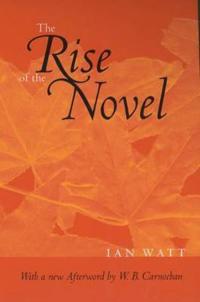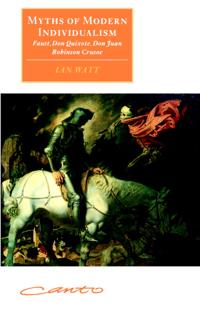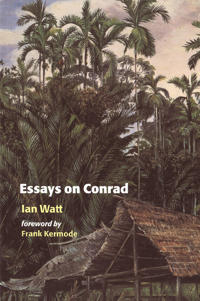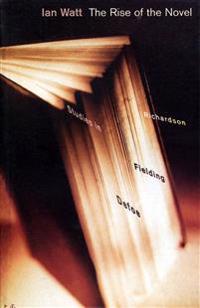Conrad in the Nineteenth Century (Övrig)
avIan P. Watt
ISBN: 9780520044050 - UTGIVEN: 1981-06-29'Nothing short of a masterpiece...One of the great critical works produced since the 1950s' - "New York Times".[...]
The Rise of the Novel: Studies in Defoe, Richardson and Fielding (Häftad)
avIan P. Watt, W. B. Carnochan
ISBN: 9780520230699 - UTGIVEN: 2001-06"The Rise of the Novel "is Ian Watt's classic description of the interworkings of social conditions, changing attitudes, and literary practices during the period when the novel emerged as the dominant literary form of the individualist era.
In a new foreword, W. B. Carnochan accounts for the inc[...]Myths of Modern Individualism (Häftad)
avIan P. Watt
ISBN: 9780521585644 - UTGIVEN: 1997-02In their original versions, the ultimate fates of Faust, Don Quixote, and Don Juan reflect the anti-individuals of their time: Faust and Don Juan are punished in hellfire, and Don Quixote is mocked. A century later, Defoe?s Robinson Crusoe embodies a more favourable consideration of the individual. [...]
Essays on Conrad (Pocket)
avIan P. Watt
ISBN: 9780521783873 - UTGIVEN: 2000-09Ian Watt (1917?1999) has long been acknowledged as one of the finest of post-War literary critics. The Rise of the Novel (1957) is still the landmark account of the way in which realist fiction developed in the eighteenth century and Watt?s work on Conrad has been enormously influential. Conrad in t[...]
The Rise of the Novel (Häftad)
avIan P. Watt
ISBN: 9780712664271 - UTGIVEN: 200001In this influential study, Ian Watt traces the genesis and development of the most popular of all literary forms, the novel. In his penetrating and original readings of Daniel Defoe, Samuel Richardson and Henry Fielding, he investigates the reasons why the three main eighteenth-century novelist wrot[...]







